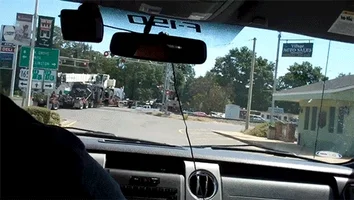By TIM FAULKNER/ecoRI News staff
 State senators got few answers about a proposal to expand the
Amtrak rail line in Rhode Island during a Feb. 28 conference call with federal
officials.
State senators got few answers about a proposal to expand the
Amtrak rail line in Rhode Island during a Feb. 28 conference call with federal
officials.
The public meeting was held to assuage fears about the portion of
the NEC
Future project that
runs between Westerly and Kenyon, a village in Richmond.
Sen. Dennis Algiere, R-Westerly/Charlestown, said he was worried
about environmental damage to aquifers, farmland and historic villages in the
segment of the project called the Westerly Bypass.
Officials from the Federal Railroad Administration (FRA) insisted
that environmental concerns must be addressed.
The project, however, is only in the conceptual phase, they said.
An environmental impact report was issued in December. FRA is
reviewing public comments, and a record of decision for Tier 1 is expected in
the coming months. The process takes the same course for Tier 2.
In the second phase, the FRA will determine design, construction
and cost for specific projects along the entire route. Public workshops will be
held and public input gathered.
During the recent Statehouse meeting, FRA officials had no answer
when asked if the state or the municipalities along the route would be asked
pay a portion of the $130 million project.
“We don’t know exactly know how the program will be funded,” said
Brian Rodda, an FRA community planner.
The FRA also couldn't say if land acquisitions would be necessary,
but noted that the use of eminent domain would be determined by each county.
The project also aims to upgrade rail infrastructure, such as
overhead power lines. In all, the project aims improve the overall reliability
of a train system that moves 750,000 passengers daily.
In Rhode Island, the proposed upgrades include three tracks and
one freight track between Kenyon and the Port of Davisville in Quonset Point;
four tracks would operate between East Greenwich and Warwick.
A new station
would be built in Pawtucket. Station upgrades would happen at T.F. Green
Airport in Warwick and in Kingston. A new two-track segment would be built
between New London, Conn., and Kenyon.
The Westerly Bypass would reroute tracks through Grills Preserve in Westerly and through Charlestown's Francis C. Carter Memorial Preserve and Amos Green Farm.
New tracks would rejoin with an unused rail bed in the Great Swamp
Management Area in South Kingstown.
Wetland filling could occur in Indian Cedar Swamp in Burlingame
and in the Great Swamp Management Area. Blasting and trenching are also
possible.
A Drop the Bypass opposition movement has garnered
support from Gov. Gina Raimondo and other politicians, and from the
Narragansett Indian tribe.
The NEC Future project began in 2012, and approved projects are
expected to be completed on a piecemeal basis through 2040.
Transportation experts believe the project will not likely
progress in the near term given President Trump’s intention of cutting domestic
spending and the chronic underfunding for train infrastructure.
“To shave a few minutes off of rail service for the amount of
money that’s being spent perhaps it’s not the best use for this proposal,”
Algiere said. “I do ask that you go back and come up with a better proposal on
this bypass.”